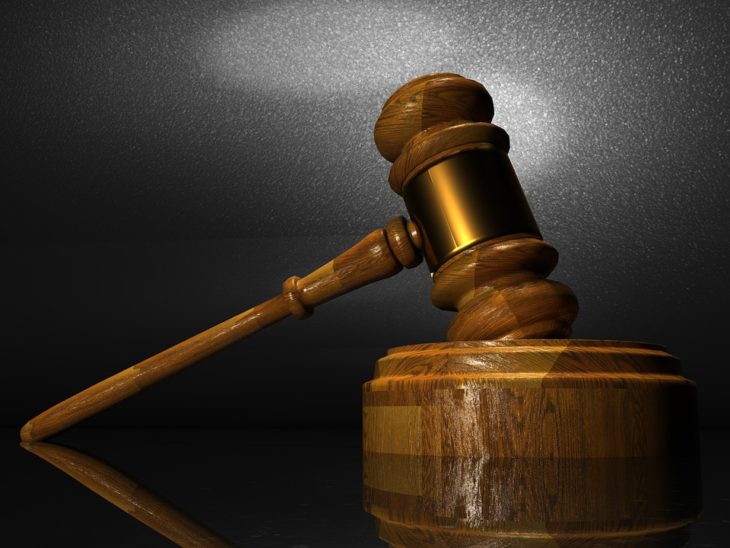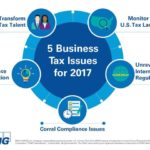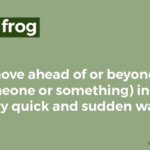
Tax Evasion Traps Businesses Need To Be Aware Of
As the Biden Administration negotiates a global tax deal, it has become increasingly clear that tax evasion is something that governments across the world are taking more seriously than at any time in the past. This comes after the scandals of the Panama Papers and the Russian laundromat case, disclosures by Swiss banks. These scandals exposed failings within the global tax infrastructure and led to a massive backlash against attempts to evade taxes. Consequently, governments are taking action not just to stop tax evasion, but to punish those that facilitate it or fail to prevent it. The sanctions for tax evasion are high and so businesses should be weary of falling into tax evasion traps. In this article, we will discuss the tax evasion traps that businesses need to be aware of.
Tax evasion is, in most countries at least (in Switzerland, non-disclosure of taxable income is not an infringement), is a crime, unlike tax avoidance, no matter how aggressive the tax avoidance. Nevertheless, aggressive tax avoidance can seem in some respects to be tax evasion. The more aggressive the tax avoidance, the easier it is to start to think of it as tax evasion. This is something that businesses should consider as the tax authorities seek to expand their ability to discover and prosecute tax evasion offences.
Tax evasion, properly defined, is the use of illegal means to avoid paying one’s tax obligations. This is typically done by misrepresenting how much taxable income a business or individual has to the Internal Revenue Service (IRS). The act of misrepresentation can be done by underreporting income, hiding money and interest in offshore accounts, or inflating deductions. As Gregory v Helvering, the United States Supreme Court concurred with Justice Learned Hand’s belief that a person may arrange their affairs in such a way as to pay the lowest possible tax. A person is not obligated to choose the method which gives the Treasury the most revenue. Increasing your tax bill is not a patriotic duty. Nevertheless, the Supreme Court also ruled a person cannot illegally distort the United States tax code in order to reduce their tax obligations.
Frequently, tax evasion is done to disguise illegal income. A true reflection of income would be tantamount to an admission of guilt and lead to prosecution. Attempting to report illegal earnings as coming from legitimate sources could lead to charges of money laundering.
In the United States, as we have said, tax evasion is a criminal offence. According to Section 7201 of the Internal Revenue Code, willfully attempting to evade or defeat tax or the payment of tax, will result in financial penalties, as well as other penalties, and that person or business will be guilty of a felony. If convicted, fines shall be levied, or the person imprisoned for 5 years, or both, and the costs of prosecution assumed by that guilty party.
Proof of tax evasion starts from proving that there is some unpaid tax liability. Secondly, the IRS will attempt to prove that there was some act that shows an attempt to evade tax. Thirdly, it’s necessary to show that there was specific intent to evade tax. Conviction rests on proving all three elements.
So the essential thing to remember is to pay your taxes and don’t engage in illegal activities. Let’s take that a step further.
Tax evasion requires that there be some kind of facilitation, not simply from one employee but a group of people within the organization or associated with the organization (for instance, your bank, a supplier, agents, or subcontractors). I cannot give a complete list of the kinds of associated entities because of how broadly this is defined. If however a rogue employee were to engage in illegal activities, that would not necessarily reflect on the company. In other instances however, there is a vicarious liability undertaken when engaging with associated entities.
As the code states, intent is necessary. A person who facilitates, either through negligence or mistake, the act of tax evasion, is not guilty of a criminal offence because criminal intent is definitional in establishing a case of tax evasion. This is important to remember. A good faith error, made under the belief that one is complying with the tax code, is a defence against charges of “willfulness”, even if that person’s belief is unreasonable or irrational. The law does not exist to punish the stupid or naive. If, however, a person’s act of tax evasion is based on the belief that the law is unconstitutional, then there is no defence based on a misunderstanding that is itself based on the tax code’s complexity, no matter how genuine the belief or how much good faith that belief is vested with.
According to the Internal Revenue Service, small businesses and sole proprietorships are the biggest causes for the gap between the tax obligations of Americans and the tax revenue that the federal government earns. This is because small businesses and sole proprietorships typically engage in transactions that the government cannot easily be aware of. This makes it easier for them to skim or not report income without any real consequences.
There is a lot of wilful failure to report income from side gide, tips, other cash receipts, as well as barter income items. Sole proprietors or owners or small businesses often simply avoid reporting income. According to a 2016 study, because firms in the sharing economy, such as Airbnb, Etsy and Lyft, do not file 1099-K forms in the event that participants have less than 200 transactions or earn less than $20,000, there is a lot of unreported income. Research shows that the typical American tax evader is a male of 50 years or younger, in the highest tax bracket, and who has complicated returns, and that they usually use a combination of charitable donations to evade taxes.
It’s important then to recall the principles under which an entity can be prosecuted for tax evasion. Intent is important. If you have no intent then that is one step in the right direction. So for instance, if you are conducting your business banking and do not actively try to hide your income, then you will have a strong defence against accusations of tax evasion. Secondly, it’s important that you pay what you owe and that you do not misrepresent your income.







